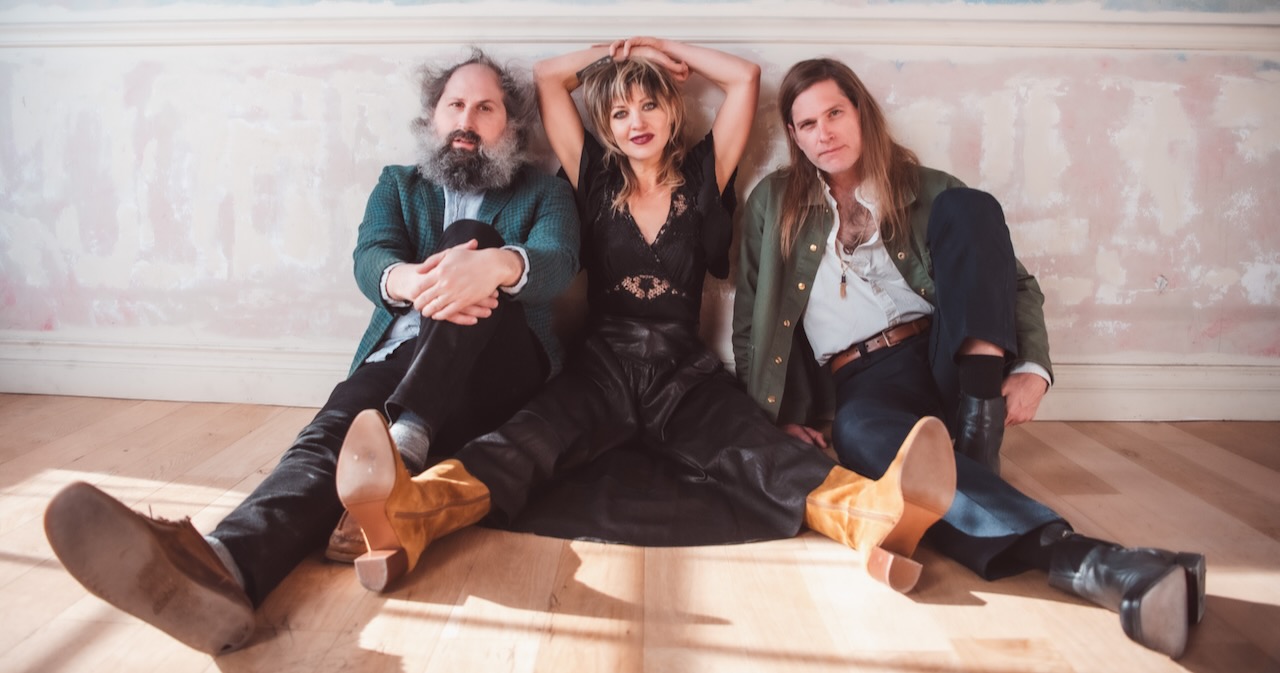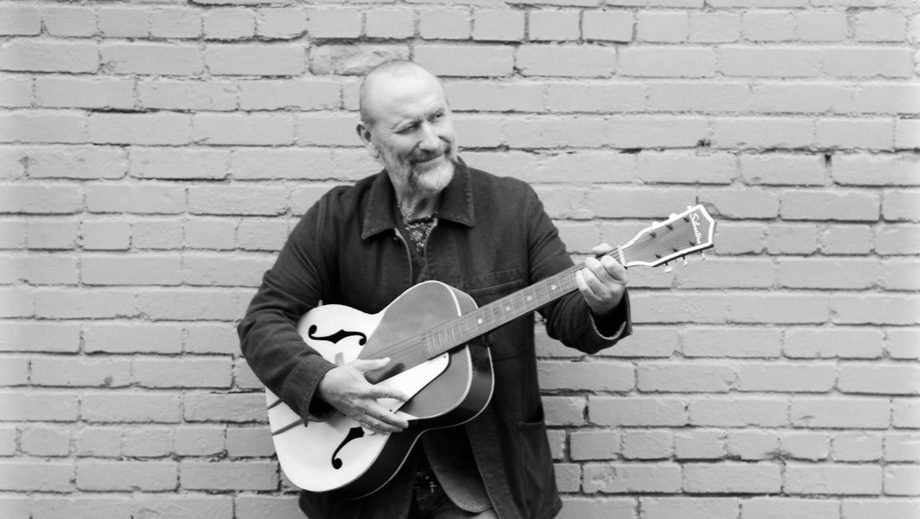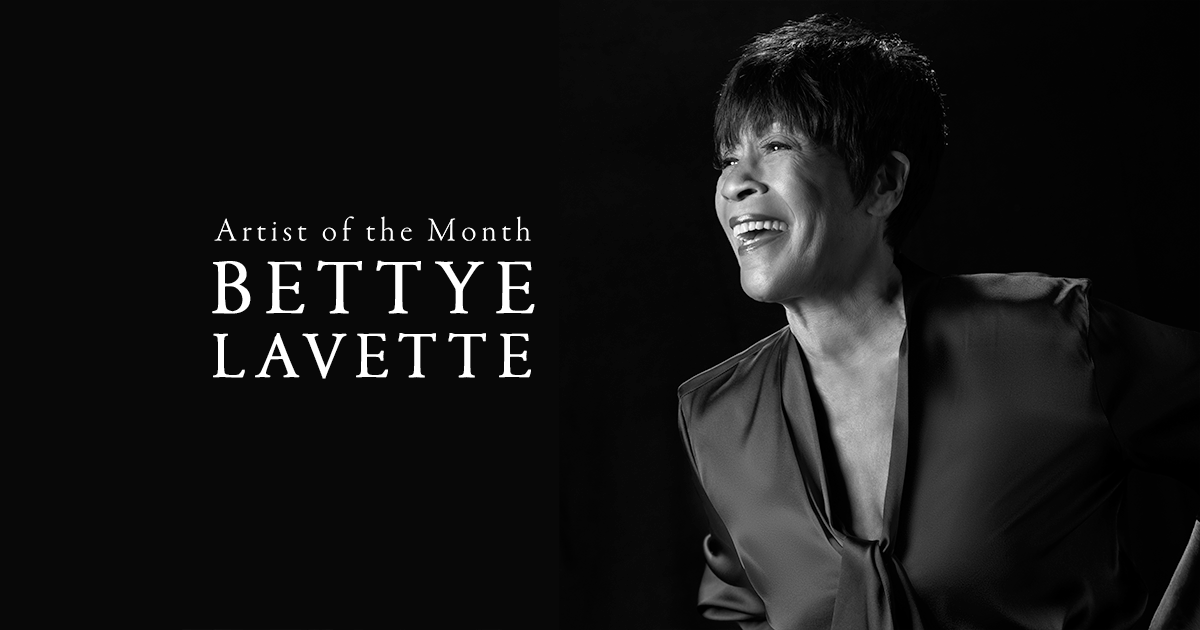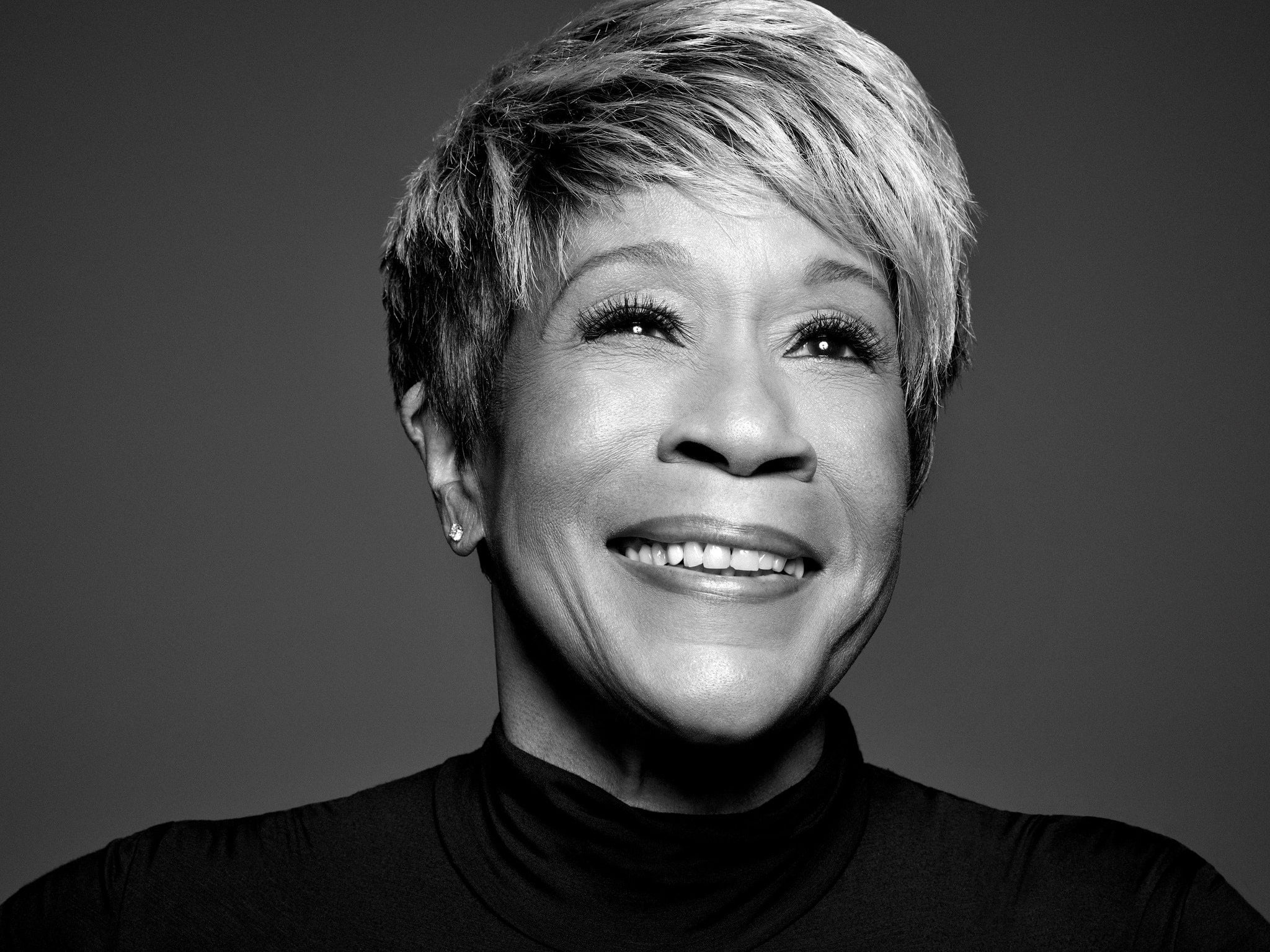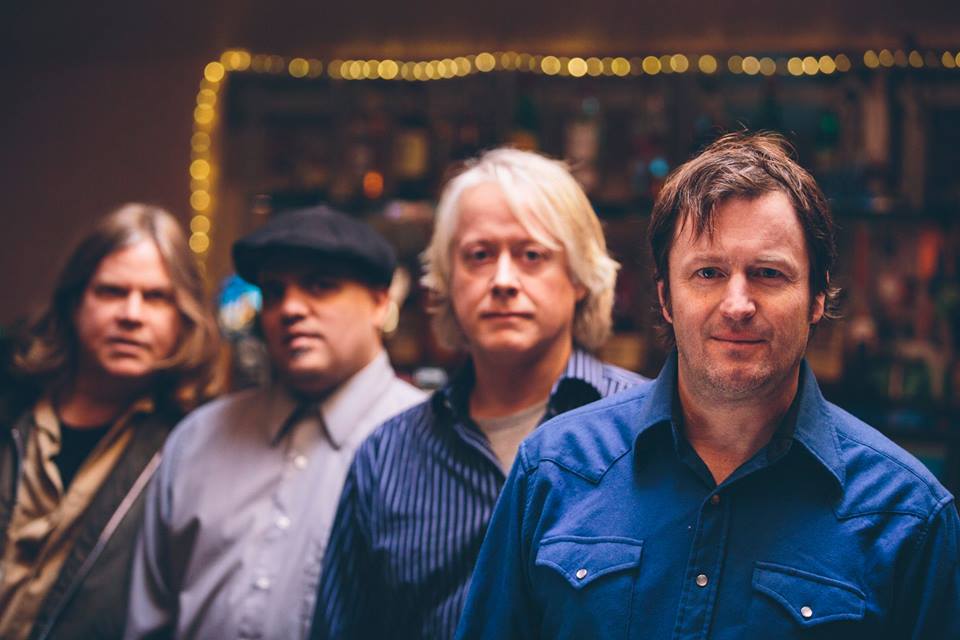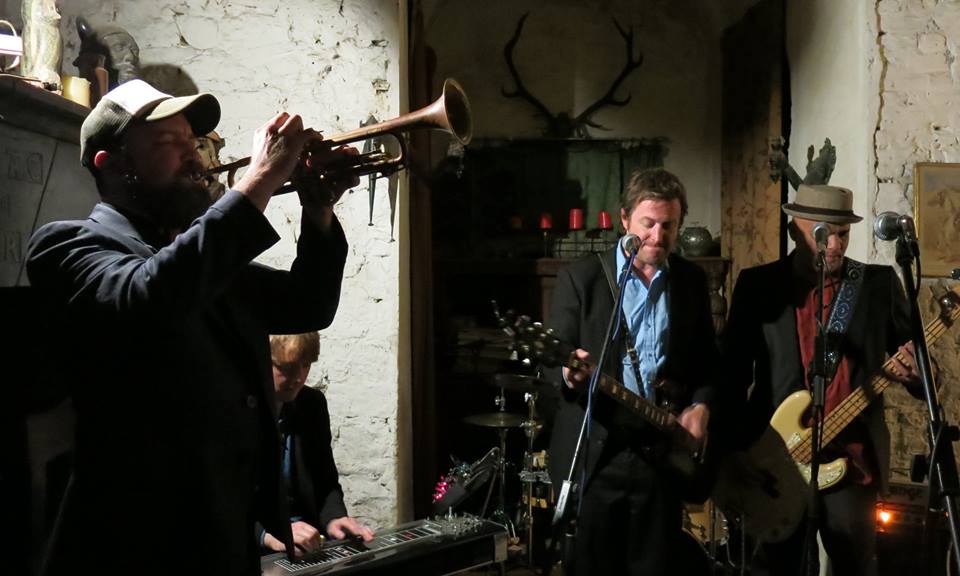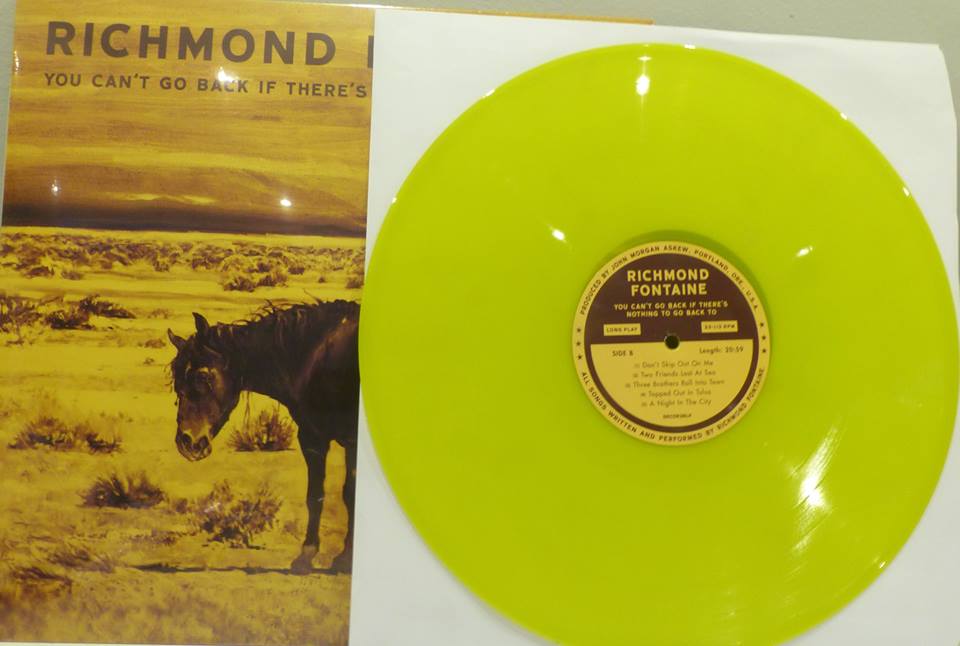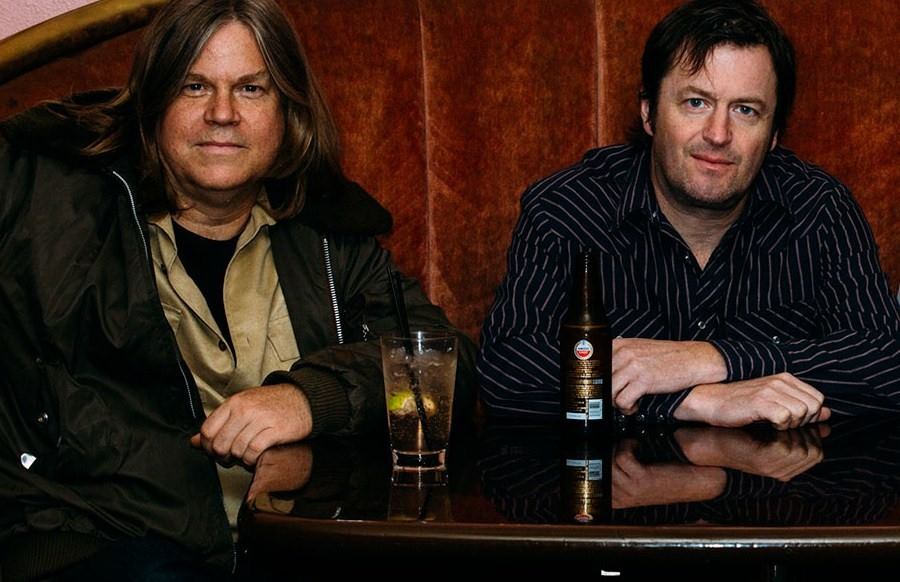(Editor’s Note: To mark the occasion of Bonny Light Horseman’s brand new double LP, Keep Me On Your Mind/See You Free – which were released in June – we invite our readers to be as flies on the wall during a special exclusive interview, an entertaining and joyful conversation between the members of this folk supergroup, Eric D. Johnson, Josh Kaufman, and Anaïs Mitchell.
Read about the band’s memories of their first gigs played for money, about popular bands they don’t really “get,” and so much more below. Plus, dig into their deep and broad discography – together and separately – with our in-depth exploration of their catalog of recordings here.)
Eric D. Johnson: We totally love each other a lot and we spend a lot of time together and we talk about everything, and I know everything about you guys, pretty much. I got some deep shit on you guys!
But, one question that I didn’t know the answer to, because I have a really funny answer for it is, what was the first show that you ever played where you got paid money? Do you remember?
Anaïs Mitchell: Oh wow!
EDJ: Can you guys remember that?
Josh Kaufman: I can remember. I don’t know if it was the very first, but it was certainly early. I played a yogurt shop in Port Jeff. I definitely played a lot of Grateful Dead songs. I think I played “Peggy-O” and like “Friend of the Devil.” I may have tried an ambitious solo acoustic version of “St. Stephen.”
EDJ: Tell me more though, was it a band? Was it you solo? And did you go just under the name Josh Kaufman?
JK: Just me. I don’t know if I was even booked. I don’t know. I may have just shown up.
EDJ: And what was the yogurt shop?
JK: I can’t remember the name of it either. I feel like I have a couple of friends that definitely would remember and definitely were there. That was the ‘90s, that was the era of the yogurt shop. It was basically a cafe, but let’s face it, it was a yogurt shop. I don’t know what I got paid, but I did get paid. I was probably 16; at a yogurt shop playing Grateful Dead songs for money.
AM: I want to see you then, Josh!
EDJ: I totally want to see him! I want to find the bootleg of that show. How did you get hooked up with the yogurt gig?
JK: Well, I was kind of in bed with big yogurt–
EDJ: You’re a big deal going way back–
JK: Going way back now! Well, how did I know about [it]? I think my friend Kevin Jones worked there. I think this is what happened. My friend Kevin Jones worked there, who you guys will meet when we play in California, because he just moved to the Bay Area. He’s going to come to our show. I think they were looking to up their game [at the yogurt shop]. And he was like, “Let’s see what happens. Let’s bring in a professional.” It must have been such a hot mess.
EDJ: I bet you were good from the jump. That’s my guess.
JK: That’s generous.
EDJ: Anaïs, what about you?
AM: I think the first time I made money for music was [when I was] 18 years old and I took a gap year. I was going to go to school, but I took a gap year and then I moved to Boston. You guys know this. I know you know this about me.
JK: You were a waitress.
AM: I was a waitress. Right. At this diner and then later as a waitress at this Cajun/Mexican place, which really sucked. It was in Central Square and I remember I had that job, because I quit it when I realized that I could make money playing in the subway. I could make equal money to what I made as a waitress. Basically, I would go down – I want to say that I played an Ovation Guitar. I’m sorry. [Laughs]
EDJ: Classic! Love this. I’m just gonna say: Ovation Guitar; yogurt shop. Just as visuals.
AM: Totally. [Laughs] I love this. They go together.
JK: You can actually eat yogurt out of an Ovation Guitar.
EDJ: They are designed for eating yogurt out of – in the ‘90s!
AM: I had a little portable [amp], my first amp. I just started playing electric on tour with you guys, but that’s not my first amp. My first amp was a little Crate amp. Do you know what those are? It was bright yellow. And it was cool. For plugging in your Ovation Guitar when you played in the subway, they were amazing.
So I did that. And the cool thing was I was really just getting going. I had written maybe a handful of songs – that I’ve repressed [since]. Like they were really not good, but if you’re playing in the subway, the audience turns over every 10 minutes. I played the same songs. I would just play them again and again. It was mostly my new songs that I had written. And I think I played a couple of folk songs that I learned from the Rise Up Singing folk music bible.
EDJ: But were people like throwing in money? What was your haul? Not because I care that much about money, but I’m just asking, is this your first profesh gig? Do you have your case? Do you have a little hat box?
AM: You got your case open and you put a couple dollars in there. You put like a five [dollar bill] to show people that. You don’t put coins, because then that’s what people put. I actually can’t remember, with inflation, like, what was that? I want to say I would go down there for an hour or two and make fifty to a hundred bucks.
JK: Oh, that’s really good. That sounds really good to me.
AM: That’s why I quit my waitressing job! I was like, this sucks. I’m just gonna do this.
EDJ: You’re 18, what is that, the year 2000?
AM: Or something… it was ‘99. Yes.
EDJ: Okay, sick. With inflation, I think that’s good. I think you did really well
AM: I might be misremembering, might be adjusting for inflation [wrong] in my memory.
JK: I think I got paid, by the yogurt shop, like $46 or something like that, which when I think about it now it’s almost like the tooth fairy or something. I think somebody just felt bad for me. They’re like, “This is 36, 46 bucks, just take it, go.” You know that, “Here’s some gas money.”
EDJ: I like that it was $46.
JK: I don’t think it was $50. I think I’d remember it if it was $50. That would have seemed like a lot of money to me. I will say, the guitar I was playing, Eric, and Anaïs, would have been the same guitar that I still play – the Guild that we made our records with and that Eric played on our recent tour.
AM: I spent some time with that guy.
Eric, I want to hear your story.
EDJ: I got you gonna beat financially by a couple bucks. When I was like 17, my friend Steve and I decided I was going to join Steve’s band just as a singer, but I was too scared to just sing and stand there. I did not know how to play guitar. So, I got a crash course in guitar from Steve. Steve came to one of our shows last summer, I think, or two summers ago when we opened up for [Bruce] Hornsby.
Steve gave me a crash course in guitar, but I didn’t really know how to apply guitar chords to cover songs, you know? I was like, “I guess I’m going to have to write.” I immediately became a songwriter, because I was too dumb to learn how to play a Pink Floyd song or something like that.
All of a sudden we became this folk duo that played a mix of covers and originals, as I was learning chords. I learned how to play some covers. I think “Ripple” by the Grateful Dead was the first – speaking of Grateful Dead, Josh. We played at this cafe in our little downtown of our funny little suburb called Caffe Trieste. It was actually really cool. It was very ‘90s. When I remember it, it smelled like clove cigarettes in there and herbal tea. It was literally a coffee house, like from the old times where you smoke cigarettes and drink coffee at night and watch music. I’m not saying it was like Greenwich Village or something like that, but it was cool.
We would play there, but for no money. That was kind of like open mics and stuff like that. We played “Tangerine” by Led Zeppelin and we played “Ripple” by the Grateful Dead. I think we played “Wish You Were Here.” And then we played sort of a smattering of my originals, which were terrible.
But, I was at home [one day] and this is in 1993. My mom was like, “You have a phone call.” And it was some lady and she says, “My daughter, Katie, she’s turning fourteen and she’s a huge fan of your music. And will you play her birthday party?” And I was like, “What?” We don’t have a band or like fans or anything like that. But apparently this girl had seen us at a school assembly – where all we played was the Cheers theme – and she’s turning fourteen. I was like, “What type of money do you usually get for things like this?” But I sort of fumbled and before I could finish and name a price, she was like, “Would $150 be good?”
That was like an unfathomable amount of money. But she also wanted us to play two sets and play for like literally two hours in their living room. We had about 20 minutes worth of material.We went to the house. Her dad owned an automobile dealership, so the house was nice. It was a room full of thirteen and fourteen year old, she was a freshman and we were seniors. I just remember that. So maybe she was turning fifteen.
When we walked in, it was like Beatlemania. They like, screamed and stuff. There were parents, friends, and stuff who were there and they were kind of these wealthy people. My house was very unsophisticated and it felt like we had sort of stepped into this sophisticated realm of our like dumb little suburb. These were the elites! We played our show, only we had not learned more songs in order to play. So we did the Anaïs thing, but without the audience turnover. We just played things over again. And they asked us to play “Rocky Raccoon” by the Beatles. Then there was a set break and we had no more songs. We went out to Steve’s Jeep and got super high and then came back in and just played literally the same set again and doubled up on “Rocky Raccoon.” We played it four times in one night.
Anaïs Mitchell: What were you wearing? Did you dress up?
EDJ: I’m sure I was wearing something weird. I had a very schizophrenic style at the time. It was the ‘90s! I would wear plaid ‘60s golf pants, but I had this shirt that was a bread truck delivery shirt that had the name “Byron” on it like a name tag. My hair looked like Jason Priestley from 90210. I hadn’t honed my style yet, but I’m sure I just tried to dress up cool.
It was quite a first taste.
AM: That’s amazing. You might be the only band to play “Rocky Raccoon” four times in a show.
JK: The Beatles never played it one time in a show, I don’t think. So you beat the Beatles.
EDJ: Someone asked me this question recently – and you don’t have to answer with a modern band, because it could be more controversial – but what’s a band that’s iconic, that people love, that you’re like, “Not that…”
JK: Oh, Annie has a list of these they’re called like, unimpeachable bands that she doesn’t want to listen to. That she wants to impeach.
AM: I want to know her list!
JK: For instance, I think the Stones are on there. She’s like, “I mean, sure, the Stones are great or whatever, but I don’t want to listen to them.”
EDJ: For the Situation readers, by the way, this is Annie, Josh’s wife [we’re talking about]. Annie Nero.
JK: Yeah! But, for my own… let me think about that for a second.
AM: I have one, maybe. Maybe it’s going to be the same.
EDJ: Mine’s a little bit The Smiths – I actually think that the band sounds great. It’s sort of like The Doors, for me, where I’m not as into the front person [as I am the band], and I have to believe in the front person.
My other one is that I love Bob Dylan, but he’s like my 18th favorite songwriter. It’s still really high up there in the pantheon of songwriters, but probably a very low ranking as far as Dylan goes. I know Dylan’s a big one for you, Josh, but for me I have seventeen others I put above him. That’s an arbitrary number, but yeah.
AM: I was gonna say Crosby, Stills, Nash, and Young. I’d be interested in hearing Annie’s whole list, ’cause I do wanna say, I feel like it’s a gendered thing. I’m not even gonna be eloquent about it, but I do think we have deified certain male artisan bands.
Where it’s like, “Aren’t you into this?” And I’m like, “Actually no.” But I sort of feel like they’re unimpeachable. Like I’m supposed to be like, “Oh yeah, CSNY!!” But my feelings are complex about CSNY, because I love Neil Young and I love Graham Nash. I think it’s really David Crosby – rest in peace – that like, for somehow I’m [hung up on]. I read about how he produced the first Joni Mitchell record and, for me, Joni’s like the top of the totem. Reading about their dynamic, back in the day [is troubling.]
Everyone loved Crosby. She had to kind of be like, “Oh my God, it’s Cros!” You know, but she was Joni Mitchell! I couldn’t really feel that stuff. Yeah, that’s gonna be my band. It’s frustrating.
Sorry, we canceled. [Laughs]
EDJ: No, I think CSNY is a reasonable one!
JK: I was gonna say The Who, honestly. The Who are awesome and everything and certainly there’s ‘60s garage [rock] stuff that’s fun and everything.
EDJ: I think it’s okay to throw fire at those guys. Dylan can take it and be pissed. They can fucking take it!
JK: I guess I feel like that’s lazy of me.
I think Anaïs’ comment about this sort of Mount Rushmore of at the time, early 20s baby boomer white men [was well made]. When they were very young with guitars, for some reason, we’ve decided that those guys are the best.
EDJ: It’s like the Rolling Stone magazine “top 40 cool guys” list. It’s like a mural at a guitar center in suburban Atlanta that you stopped at on tour.
But also Anaïs, sidebar, in my seventeen songwriters above Dylan, Joni Mitchell is my number one, so…
JK: She’s at the top of my list for sure, but I think in the top zone. I don’t know if they’re like tiered necessarily, because since it is art and stuff, it does sort of depend on the opening that I have for it on any given day to enter my heart.
AM: I got a couple more. You guys, this is going to be wild. Well, maybe not. I mean, you guys know me pretty well, because it’s some of these things, the music is undeniable and has shaped other music, but it’s not for me, you know? I would put the Beatles in that category.
JK: I was waiting for you to say that!
AM: I would put both [CSNY and the Beatles] in there. And I sort of appreciate it when I hear it. Like when I hear it coming out of someone’s car or on the radio or whatever, but I will never put that music on myself.
EDJ: I feel like with Beatles, if it didn’t catch you at a certain moment it’s a tough, massive thing to dig into. I didn’t get into Joni until I was 30, and it was like one of the pivotal musical moments of my life.
That’s not to say, “I think you have to be 38 to get into Joni,” but I think for whatever reason, she’s so deep and cool and crazy that I think it took me having a little life behind me to sort of understand what it was about. Someone who had seen clouds from both sides now, like at that point, it hit me like super hard.
I think Beatles, talk about iconography and stuff like that! It’s like, I totally get it. But I can’t. I love the Beatles. It exists in my musical and our band’s musical DNA. I’m never not thinking about like a McCartney melody.
AM: I had some grand thought while you were just saying that, about when you encounter music and when it speaks to you. Because yes, if you’re fourteen, if you’re fifteen discovering Ani DiFranco as I was. She became like my whole raison d’etre, but then for someone discovering her later, at a different time in their life or whatever, it’s different. You had to be a certain age to get the Joni.
And, I wanted to talk about the Grateful Dead because, like the Beatles, I might’ve put them in [this category] if we had spoken a different time, but now I know and love you guys. I sort of became like a late-blooming deadhead, because of your love for the dead. I really got into it and really into the lyrics. I genuinely, really appreciate that music now, in a way that I didn’t like, ten years ago. Part of that is because I love you guys.
I kind of love how your love for people then transfers to your love for the things that they love. And that then becomes a thing that you love.
JK: I totally feel that. I’m not going to name any names here, because I feel like it could be misconstrued, but I do feel like I remember early on going out and opening up for bands with friends and at the beginning of it having already made up my mind about this music or something. But then, getting to know these people intimately over the course of a month and having these accelerated friendships as a result of being around each other every day and sort of falling for what they’re doing a little bit. Or maybe, at least being way more open to it than I ever would have been just hearing it on the radio or hearing it in a friend’s car.
So much music [from] growing up I associate with people that I love, for sure. Getting into Bob Dylan ‘cause I love my dad. At a young age like, “This guy’s obsessed with this guy!” And I guess I’m kind of obsessed with this guy who’s into this guy.
A funny one for me is They Might Be Giants. I love the songwriting of They Might Be Giants and I love that band so much, but I wouldn’t expect one of you guys to get into it now if you weren’t into it when you were fourteen. You know what I mean?
EDJ: I love the point you made Josh, about touring with bands or something, especially in the indie rock days, where you’re really like up in each other’s grills. You bond in a kind of a different way. …
You guys, we have four minutes left. What are your top three favorite foods, Josh.
JK: My top three favorite foods, um… Today I would say, I like Szechuan Chinese food. I like Greek food. And I like Italian food. You know, all the classic Northern Italian things and all the Roman pasta stuff. I mean, who am I kidding, right?
I’m going genres, not dishes, because for me, it’s definitely more about a palette than it is about a specific [dish]. You know, grilled fish and lemon and tomatoes and cucumbers. If I want something in that zone, then I want Greek food. If I want spicy, zingy Szechuan peppercorn, it doesn’t really matter what it is, it could be like shrimp or tofu or chicken, or it could just be string beans. I just get in the mood and go in that direction.
EDJ: Anaïs, what do you got?
AM: I just got so hungry when you described the fish with the lemon and then the tomatoes, Josh. Now that’s what I want. All right. The first thing I’m going to say is Josh’s food. I want not what you just said, but food that Josh Kaufman cooks. I would like the fluffy eggs that you make sometimes. And also one time you whipped up a chicken soup. Do you remember that? You just whipped it up so fast and it was the best chicken soup I’ve ever had.
JK: Oh, I love that. That’s so sweet. I love cooking for you guys.
AM: I also love and I recently had– do you remember the place Wang’s in Park Slope? It’s kind of like fried chicken, Southern stuff, but then also is it Korean?
JK: Korean fried chicken? I think, right?
AM: I had something like that with Ramona, my older daughter recently, and I was like, “Oh my God, this is very delicious.”
Eric, you tell us yours.
EDJ: Oysters, shrimp cocktail, nachos… uh, buffalo wings. And that’s it. Love you guys.
AM: Love you.
EDJ: Love you. Hopefully it’s all turned out awesome and we have so many cool things to talk about. I’ll see yous on Thursday night!
JK: I love you guys so much.
Photo Credit: Jay Sansone.
